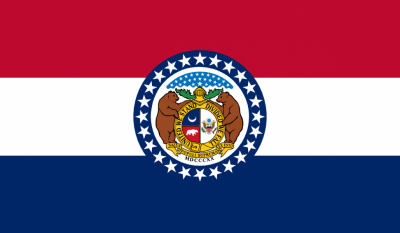Missouri

Missouri recognizes both a right of publicity, and a distinct privacy-based tort of appropriation.
Statute
NO
Common Law - Right of Publicity
YES
Missouri has long recognized under the rubric of “privacy,” a property right in one’s image and the right to control its use. To establish a violation of the right of publicity a plaintiff must establish that: (1) the defendant used the plaintiff’s identity; (2) without consent; and (3) “with the intent to obtain a commercial advantage.”
The Supreme Court of Missouri has distinguished the common right of publicity from the tort of misappropriation, noting that the right of publicity “protects against commercial loss,” while the right to privacy protects against “intrusion upon an individual’s private self-esteem and dignity.” The main differences are in the damages sought and the requirement that a use must be for a commercial advantage, rather than simply for any advantage, in the context of a publicity-based claim. The state supreme court has also held that the defendant must have intended to obtain this commercial advantage. The state’s analysis tracks the Restatement (Third) of Unfair Competition.
Doe v. TCI Cablevision, 110 S.W.3d 363 (Mo. 2003)
Munden v. Harris, 134 S.W. 1076 (Mo. Ct. App. 1911)
C.B.C. Distrib. & Mktg., Inc. v. MLB Advanced Media, L.P., 505 F.3d 818 (8th Cir. 2007)
Common Law - Right of Privacy-Appropriation Tort
YES
Missouri has long recognized a right to privacy and the tort of appropriation of a plaintiff’s identity for a defendant’s advantage. Unlike the common law right of publicity, the misappropriation tort does not require that the defendant’s use be for commercial advantage.
The state’s analysis of the tort tracks the Restatement (Second) of Torts.
Doe v. TCI Cablevision, 110 S.W.3d 363 (Mo. 2003)
Nemani v. St. Louis Univ., 33 S.W.3d 184 (Mo. 2000)
Haith v. Model Cities Health Corp., 704 S.W.2d 684 (Mo. Ct. App. 1986)
Post-Mortem Right
No court has considered this issue.
Limits on Right
Does the law require the plaintiff or identity-holder to be a celebrity or have a commercially valuable identity?
LIKELY NOT
The privacy-based appropriation tort does not require such a showing, but the right of publicity may turn, in part, on the plaintiff having a commercially valuable identity. The Missouri Supreme Court, however, has declined to so hold. Several appellate courts have nevertheless suggested that a right of publicity action requires that one be a celebrity, or otherwise have a commercially-valuable identity.
Doe v. TCI Cablevision, 110 S.W.3d 363 (Mo. 2003)
Nemani v. St. Louis Univ., 33 S.W.3d 184 (Mo. 2000)
Haith v. Model Cities Health Corp., 704 S.W.2d 684 (Mo. Ct. App. 1986)
Munden v. Harris, 134 S.W. 1076 (Mo. Ct. App. 1911)
C.B.C. Distrib. & Mktg., Inc. v. MLB Advanced Media, L.P., 505 F.3d 818 (8th Cir. 2007)
Does the law protect persona?
LIKELY YES
The Missouri Supreme Court has allowed a claim arising out of a comic book character that did “not physically resemble” the plaintiff, because in context the variation on the plaintiff’s name caused a “correlation” or “connection” between the plaintiff and the character. In another case, the state supreme court rejected a claim that a person’s horse identified that person.
Doe v. TCI Cablevision, 110 S.W.3d 363 (Mo. 2003)
Bayer v. Ralston Purina Co., 484 S.W.2d 473 (Mo. 1972)
Is Liability Limited to Uses on Commercial Advertising or Commercial Speech?
NO
The Missouri Supreme Court has applied the right of publicity in the context of noncommercial speech. A right of publicity claim must be for the defendant’s “commercial advantage,” but this has been applied to expressive works, such as comic books. The misappropriation claim does not require a commercial use of any sort.
Doe v. TCI Cablevision, 110 S.W.3d 363 (Mo. 2003)
Nemani v. St. Louis Univ., 33 S.W.3d 184 (Mo. 2000)
Haith v. Model Cities Health Corp., 704 S.W.2d 684 (Mo. Ct. App. 1986)
C.B.C. Distrib. & Mktg., Inc. v. MLB Advanced Media, L.P., 505 F.3d 818 (8th Cir. 2007)
First Amendment Analysis
Missouri recognizes exceptions from the common law right of privacy for the publication of newsworthy matters of public concern. Missouri also has adopted a predominant use test to determine whether a use is protected by the First Amendment. The predominant use test considers whether a use “predominantly exploits the commercial value” of the person’s identity or instead predominantly makes an expressive comment about the person. In contrast, the Eight Circuit Court of Appeals uses a balancing test to determine whether free speech interests outweigh the interests of the identity-holders.
The Eight Circuit has held in the context of a claim under Missouri’s right of publicity that the First Amendment bars a claim arising out of the use of baseball players’ names and statistics in the context of a fantasy sports league.
C.B.C. Distrib. & Mktg., Inc. v. MLB Advanced Media, L.P., 505 F.3d 818 (8th Cir. 2007)
Doe v. TCI Cablevision, 110 S.W.3d 363 (Mo. 2003)
Barber v. Time, Inc., 159 S.W.2d 291 (Mo. 1942)
Williams v. KCMO Broad. Div. Meredith Corp., 472 S.W.2d 1 (Mo. Ct. App. 1971).
Other Commentary
The Eighth Circuit has held that Missouri’s right of publicity is preempted by federal copyright law when the claim arises out of an authorized copyrighted work.
